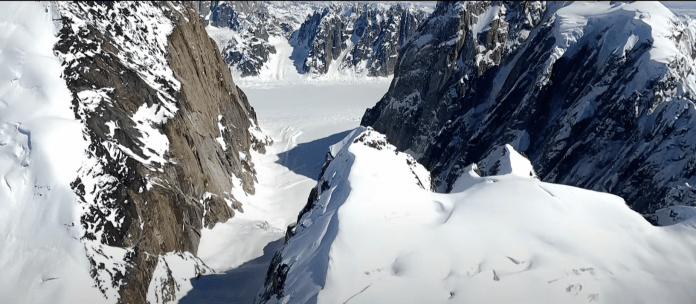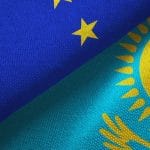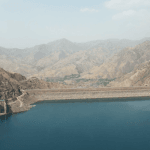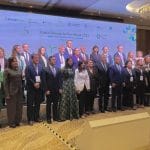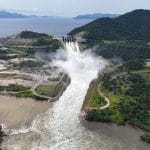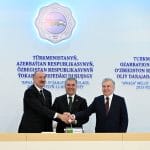With heatwaves across Europe pushing temperatures up as the continent continues to suffer the effects of the climate emergency, COP30, the 30th annual global climate change conference of the parties, is a big opportunity for governments to crystalize their newly updated national climate action plans at their meeting in Belém, Brazil on November 10-21, according to one of the UK’s leading climate scientists. “There’s no doubt in my mind the upcoming COP is the best opportunity for humanity for many years to come,” said Sir David King, former UK Government Special Representative for Climate Change, speaking to NE Global in an exclusive interview.
Geopolitics is increasingly influencing the climate change debate. “That’s the big worry. Geopolitics, the move towards populism, the move away from rationality,” King said on the sidelines of an energy conference in the seaside resort of Lagonisi, south of Athens, Greece, on July 2. “It sort of amuses me when I heard scientists being described as ideological in that last session. Is it ideological to point out what is happening in Europe today was predicted by a lot of scientists,” the soft-spoken former UK scientific advisor said, smiling.
“So, you can see that the scientific community is very frustrated, but we are patient. The Climate Crisis Advisory Group (CCAG) has set out a comprehensive strategy to create a manageable future for humanity,” King said about the independent international scientific body which he chairs that works to provide expert advice and guidance to global leaders as they seek further commitments to combat the climate crisis. “But if we don’t follow that strategy, we have no future for humanity beyond 50 years,” he quipped.
Although there were some notable achievements during COP29 in Baku, Azerbaijan, King said, “COP30 is easily the most important of the last four COP meetings. The reason I say that is because the new nationally determined commitments will be crystalized at that meeting.”
“I think COP30 is a massive opportunity. I met (Brazilian) President (Luiz Inácio) Lula (da Silva) several times during his first Presidency. He is completely committed first to the Amazon, secondly to action on climate change, I believe he is very sincere on that and last week, we, the Climate Crisis Advisory Group had a meeting with President of COP in Brazil,” King said.
The former UK Government Special Representative for Climate Change explained that COP is a very clumsy process. “Four thousand negotiators, how do you reach agreement and usually the United States turns up with 160 and those 160 go around telling everyone don’t bother to do anything. It has happened since 2000 since I have been negotiating,” King argued.
“So, I think the negotiating process is clumsy and difficult but what I’m hoping and pushing for is groups of willing nations to come forward and take big steps forward. So, when I was in China, we agreed that we will do that. I was in South Africa since then and now here I am in Greece. I’m trying to persuade every progressive country let’s move together. We don’t have to move with 195 nations. If we can get 30 nations making a real commitment together, we can really make progress. Of course, Europe I’m counting as one but it’s more than that,” the Chairman of the Climate Crisis Advisory Group (CCAG) said.
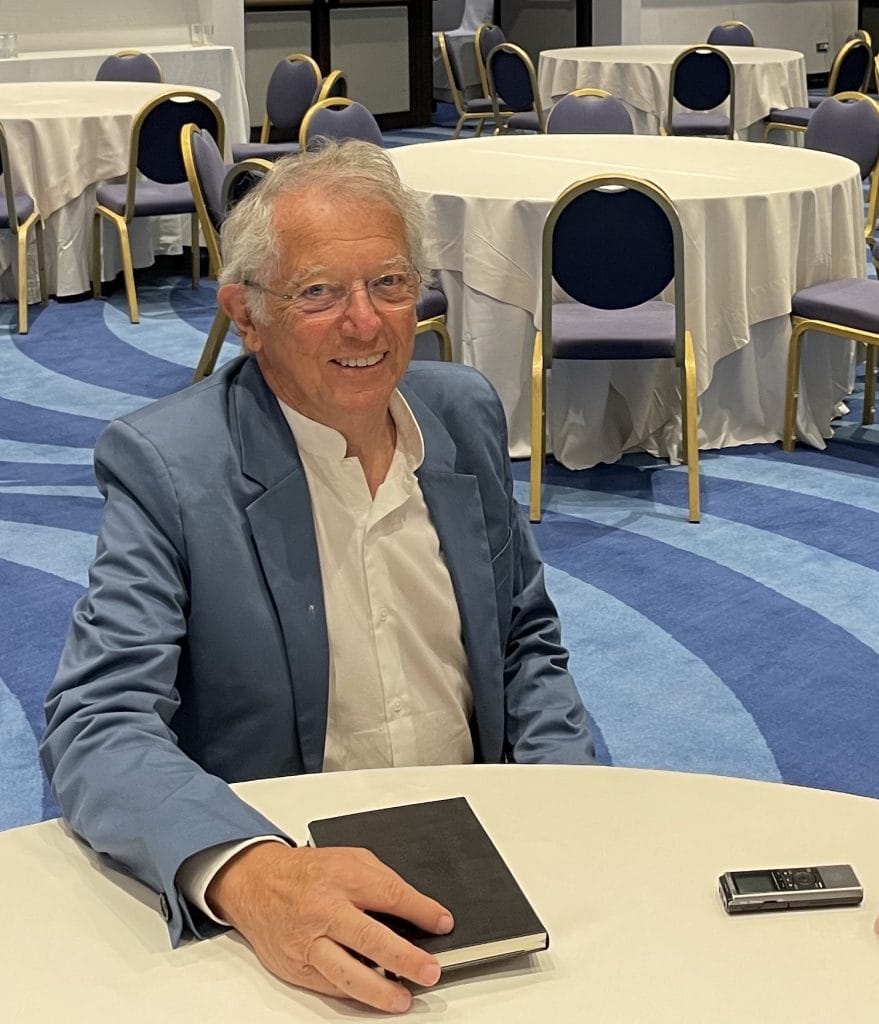
At COP29, UK Prime Minister Keir Starmer announced his country’s ambitious and credible NDC (Nationally Determined Contributions) target to reduce all greenhouse gas emissions by at least 81 percent by 2035, compared to 1990 levels (excluding international aviation and shipping emissions) – three months ahead of the February 10 deadline.
“When my present Prime Minister made this commitment of 81 percent by 2035, he was going beyond our original commitment 80 percent reduction – absolute reduction not net – by 2050. We’re now saying by 2035. That’s what I’m trying to push for every country to do and my Prime Minister led the way,” King said.
During his last meeting with COP30 President André Aranha Corrêa do Lago, King warned that there is no remaining global carbon budget that developing nations are advocating for. “We have 550 parts per million (ppm). Pre-industrial level was 275, safe level – 350. We have to remove excess greenhouse gases,” he said, suggesting Brazil starts by regrowing its forests.
Greenland’s melting ice caps
Turning to the loss of Arctic Sea ice, King noted that the bright white ice reflects solar radiation back into space, cooling the planet. As it gets warmer, the reflective ice is replaced by dark ocean water that absorbs the sun’s rays. It’s a doom loop – global warming accelerates melting, and the melting accelerates global warming.
“Now I have a massive project over the oceans of the world. That’s 72 percent of the earth’s surface. I think we can remove much, much more on the oceans and return living species into the oceans, fish and whales and so on. We have to be ambitious with these projects but pulling down greenhouse gases becomes imperative now. I believe the loss of ice in Greenland is irreversible – 30 million tons an hour is the average over the last 10 years and it’s increasing. It’s increasing because ice in the sea has melted during the summer and the blue sea becomes warm in the sunshine and the ice melts faster in Greenland,” he said.
“So, I think what we have to do is attempt to refreeze the Arctic region for three months in the year when the sun comes back to the North Pole,” King told NE Global, adding, “I set up a Centre for Climate Repair at Cambridge University and they are busy working on exactly that. How do we refreeze the Arctic during that period so that the ice grows over the sea during the polar winter months, not only stays there but keeps growing during the three summer months. At the moment when the sun comes back within three days the thin layer of ice is gone so we want to protect that by putting white clouds over all the Arctic Sea. That’s our project.”
Energy security and the green transition
King argued that investing in renewable energy and improving energy efficiency can also boost energy security. “If you want energy security in a situation where Russia is at war with the Ukraine, you need to switch to renewable energy. If you look at the most expensive form of electricity in the grid across Europe and the UK, it is gas. It’s more expensive that wind and solar,” he said.
But he stressed that a balanced energy mix is crucial for grid stability, especially as renewable energy sources become more prominent. “The energy mix is critical. So, in the UK we are now busy building new nuclear power stations. We want that stable supply to stabilize ourselves when the wind isn’t blowing in the North Sea,” he said. “I’m in favour of nuclear power. It’s a stable power source. You can guarantee your electricity will be supplied right through the year when the wind doesn’t blow and the sun doesn’t shine. Nuclear power is critically important when you get into renewables,” he argued.
Electricity interconnections are also important. “The distance between east and west in Europe is large and that means when the sun is shining here and not shining there, you put one electricity grid,” he said, explaining that a cross-border electricity grid, often referred to as a super grid, can significantly help manage the intermittency of renewable energy sources like wind and solar power.
“We are very fortunate because offshore wind in Britain is there most of the time. Our estimate is two days in the winter the wind doesn’t blow in the North Sea, the rest of the time it is blowing. But, of course, the wind is blowing through the night as well, so we get electricity day and night from offshore wind. Why is offshore wind so cheap? We hired the engineers from the fossil fuel industry who have been exploring gas and oil from the North Sea and when we hired them into renewable energy – these were the private companies doing this – they said, ‘We can deliver much longer turbines at sea than you can deliver at land,’” King explained.
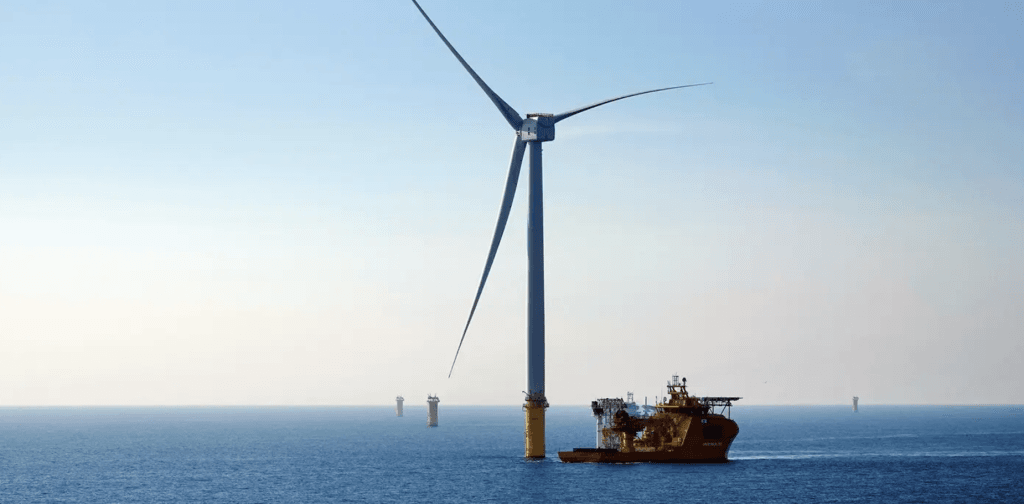
“If you have an offshore wind capacity you should use it. It becomes very cost effective. And if you are in a windy place and – by the way the island I live on, Lemnos, (on Greece’s Aegean Sea) is a windy place – then you have electricity much of that time,” he said.
But the problem is that many island nations still rely heavily on diesel-powered electricity generation, despite the associated costs and environmental impact, King said. “The most expensive form of electricity of all is burning diesel,” he said. “Every house needs its own solar energy source so that it can have a small electric storage or you just use a lithium-ion battery system for your house so you store the electricity during the day, you can use it during the night. If I was advising the Greek government I would be saying, ‘stop using diesel to make electricity, switch across to solar panels, it would save so much in costs.”
Islands should look into opportunities for energy storage and other possibilities of interlinking the islands with other parts of the mainland, King said, adding, “In Britain we put an underwater, high-voltage cable all the way up to Norway and we use a hydropower station in Norway to store energy (the North Sea link). When we have an excess, we pump it up and when we need it we let it come down. That’s a very long distance but it was economic to do that. So, I guess what I’m saying, is the proper energy mix needs a study of the region.”

